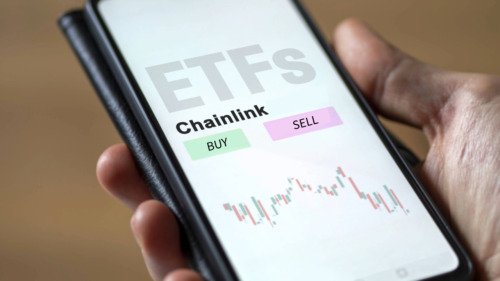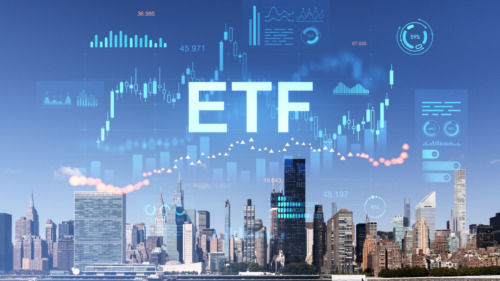Vodafone And Chainlink Announce Proof-Of-Concept to Transform Global Trade

- Vodafone and Chainlink making progress in proof of concept collaboration.
- CCIP adds an important real-world use case, potentially transforming the shipping industry.
- Blockchain integration for 3 billion IoT devices is set to shake up the market.
Vodafone’s Digital Asset Broker (DAB) has announced a proof of concept in collaboration with Sumitomo Corporation, Chainlink Labs, and InnoWave to improve the US $32 trillion ($50 trillion) global trade system. The initiative aims to simplify the exchange of essential trade documents across various platforms and blockchains, addressing the current disjointed and inefficient system.
Chainlink’s CCIP in Action
Vodafone said that by utilising Chainlink’s Cross-Chain Interoperability Protocol, the collaboration can offer enhanced security and interoperability for IoT devices. This technology could, for instance, enable a ship to autonomously send data about a cargo fire, initiating an insurance process.
The proof of concept highlights the potential of integrating DAB-enabled IoT devices with blockchains for secure and reliable data in smart contracts and other advanced applications.
With CCIP’s token transfers, protocols can quickly transfer tokens across chains, eliminating the need to build a solution independently. CCIP comes with audited token pool contracts that manage tasks like burning/minting and locking/unlocking tokens across different chains. Despite using CCIP, token sponsors still maintain full control over their token pool contracts.
Preventing Cargo Delays with Blockchain
The firms are examining the potential of global trade applications using DAB’s Economy of Things (EoT) platform, which allows devices to autonomously provide trusted data for trade processes and enhances financial transaction processing.
During the SmartCon 2023 conference in Barcelona, they showcased a method to prevent cargo delays by smoothly transferring a digital bill of lading across multiple parties and blockchains. Typically, a bill of lading might pass through a minimum of five organisations.
Jorge Bento, CEO of Vodafone DAB, stated that Vodafone DAB and Chainlink were demonstrating the potential of merging their platforms to overcome prevailing incompatibility issues.
He emphasised the integration of traditional markets with sophisticated decentralised platforms to guarantee smooth and secure data and service exchanges in the global trade ecosystem, which he noted was valued at over US $30 trillion (AU $47 trillion) the previous year.
A Bright Future for Crypto and Iot
Vodafone DAB’s partnership with Chainlink Labs, a primary contributor to Chainlink’s decentralised computing platform, is pivotal in achieving this goal.
This facilitates smart contracts to safely engage with and react to external data and events. Oracles act as connectors between blockchains and external data or systems. By becoming a node operator for the Chainlink Network, Vodafone DAB is enhancing the development and deployment of smart contracts, ensuring a more secure and efficient data exchange and computation for businesses.
David Palmer, Chief Product Officer of Vodafone DAB, stated, “The integration of IoT and blockchains has the potential to provide new monetisation opportunities for IoT devices. 3 billion IoT devices are forecast to be transacting in the economy of things by 2030. Securing consensus and validation between DAB and Chainlink will be important to drive this growth.”
Meanwhile, LINK, the native token on the Chainlink blockchain, has gained over 40% in the past month and even started its rally before the broader market took off after the Bitcoin BTC ETF news.







